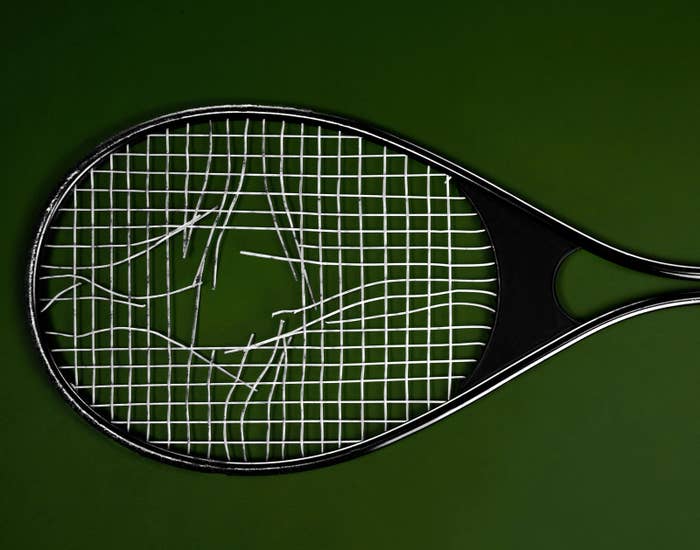
A “serious integrity problem” plagues tennis, and the sport’s authorities must overhaul their weak attempts at policing corruption, a scathing 2,000-page report sparked by a BuzzFeed News/BBC investigation has found.
In a draft report published Wednesday, the Independent Review of Integrity in Tennis found match-fixing across professional tennis, including a “tsunami” of corruption at the sport’s lower levels. The Tennis Integrity Unit, the governing body meant to police these issues, has long been toothless and still “remains inadequately resourced and lacks adequate investigatory procedures," the report found.
The review, which interviewed more than 200 key figures and surveyed 3,200 players, began more than two years ago in response to revelations from BuzzFeed News and the BBC — and it vindicated the news organizations’ main findings.
BuzzFeed News and the BBC showed that authorities had been handed compelling evidence about a network of 16 players — all of whom have ranked in the top 50 — suspected of throwing matches. Every player in the network was allowed to continue playing professional tennis.
Wednesday’s report said that problems at the sport’s higher levels were not "widespread” — but found that 20 high-level players lost more than one suspicious match between 2005 and 2008, including one player who lost more than seven suspicious matches. The report did not name the players.
The 2016 investigation by BuzzFeed News and the BBC found that the Tennis Integrity Unit, set up in 2008 to enforce fair play, had been ineffectual and secretive in dealing with the corruption plaguing the sport. Wednesday’s review revealed that the integrity unit “has insufficient resources to address the problem now faced. It is insufficiently funded, it has too few staff, it is missing staff with particular skills, and it is not structured in a way that gives it a sufficient presence around the world.” The integrity unit has already beefed up its staffing, but most of the current members are still former British law enforcement officers, which, the review stated, “hampers its ability to conduct international investigations.”
The lack of staff contributed to long delays in taking basic investigative steps. In multiple cases, it took more than a year after a match was reported as suspicious for the integrity unit to interview the players involved. In one case a match was played in April 2014 but the player was not interviewed until May 2017. In some “low-priority” investigations, players weren’t interviewed at all.
Members of the integrity unit’s advisory board have side jobs that create the appearance of a conflict of interest, the report found. The board is currently composed of high-level tennis officials, including the president of the International Tennis Federation, or ITF, and the executive chair of the Association of Tennis Professionals. The report recommended that no one on the integrity unit should have had any connection with tennis or the betting industry within the previous 10 years.
The report also suggested another major structural change. The integrity unit currently belongs to the ITF, but to best carry out its job it should become completely separate legal and physical entity, the report found.
The report pinned the blame for many of tennis’s more serious problems on gambling during low-level matches. Much of it centers on “live-scoring” betting, where people gamble in real time on a given point or game. The report found that this is ripe for abuse and recommended that the sport eliminate the sale of real-time data on low-level matches to third parties.
The panel also recommended that tennis eliminate gambling sponsorships from the sport, including at professional tournaments, “to promote both the reality and appearance of integrity.” In the past, tournaments such as the Australian Open have partnered with the betting house William Hill, though on-court signage was banned in 2016. Bookmaker bet-at-home.com sponsored ATP tournaments in Germany for a decade.
The review suggested that tennis authorities act more proactively and aggressively on “alerts” sent by betting operators to investigate and prosecute possible corruption. Those alerts, triggered by complex statistical algorithms, can help pinpoint problem players. The integrity unit received just 24 alerts in 2012, but in 2016 that number had skyrocketed to 291.
Between 2013 and 2016, 44 players generated repeated alerts. One player triggered 20 separate alerts.
In its 2016 reporting, BuzzFeed News used its own statistical analysis to find players who had a pattern of consistently losing matches where the odds had gone against them prior to the match.
Wednesday’s review gave space for Stuart Miller, the ITF’s senior executive director for development and integrity, to take issue with BuzzFeed News’ methodology and conclusions. But Miller also said that he supported the idea that the integrity unit “should make greater use of statistical analysis and ‘big data’ in its intelligence gathering operations.”
In addition to that recommendation, the review also suggested that the TIU use other investigative techniques to protect against corruption — including potentially going undercover to “solicit” a potential suspect into committing “an integrity offence, such as by fixing a match or providing inside information.”
The final report will be issued in the fall after a “consultation period.” World tennis has promised to implement the report’s findings.


